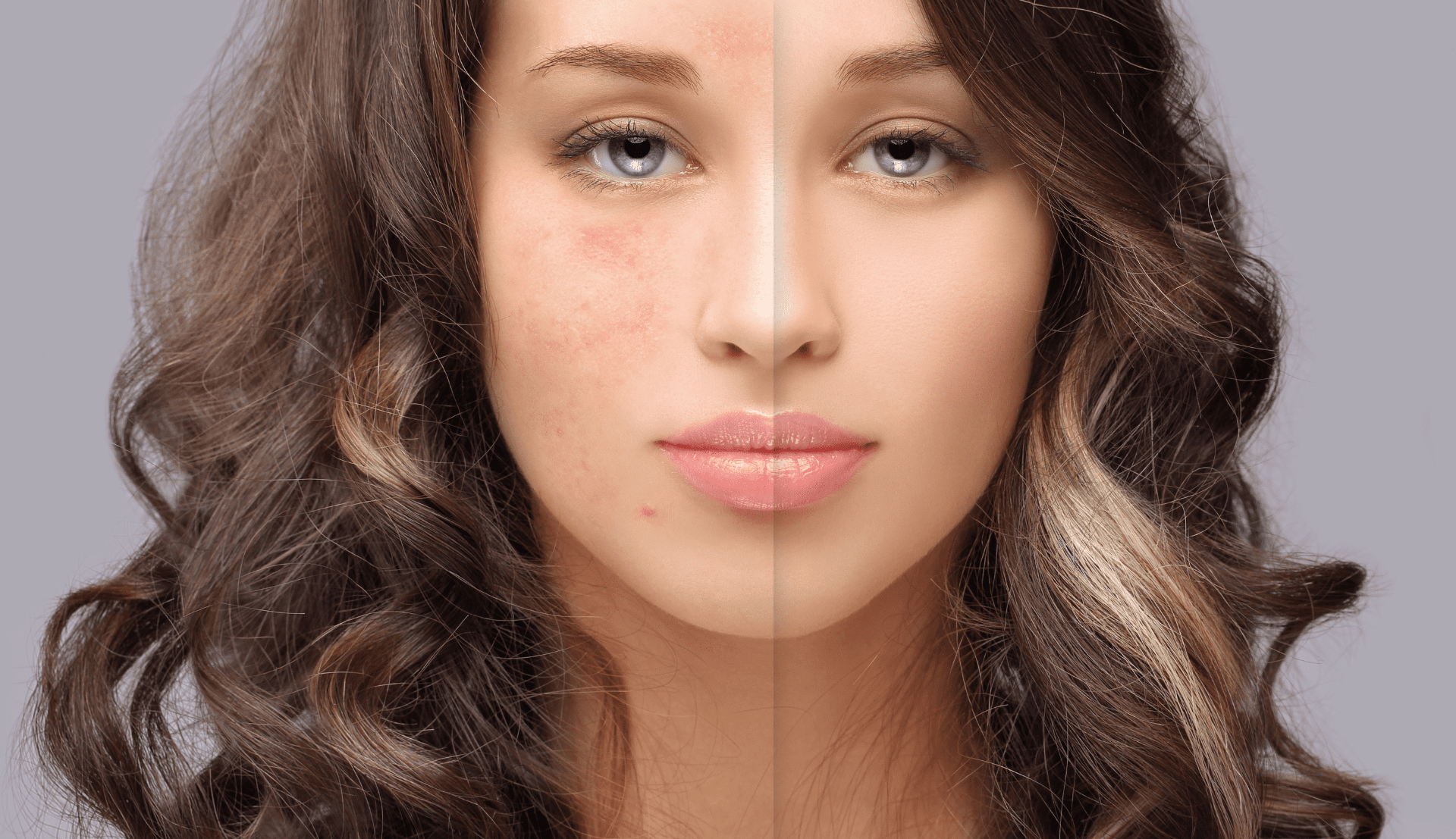The skin covers the entire body. So it can be hard to ignore when you’re irritated. That’s why the store’s bath and body product section has plenty of options for “sensitive skin.”
But what exactly is sensitive skin? And how does it differ from dry winter skin?
Sensitive skin is more of a general term than a medical diagnosis. Generally, it refers to skin that has a reduced tolerance to the use of cosmetics and personal care products. According to a survey, about 50% of women and about 40% of men have sensitive skin.
Dry vs Sensitive Skin: is there a difference
Your skin can be sensitive or prone to dryness, but there is a difference between dry and sensitive skin.
“Dry skin, known as xerosis, occurs when the top layer of the skin dries out due to lack of moisture can be caused by genetic and environmental factors: very cold or very hot temperatures, soaps that are harsh enough to dehydrate the skin, or frequent hand washing.”

Symptoms of dry skin include:
- skin tightening
- mild itching
- Flaking, scaling and peeling
Cracks in the skin that can bleed
Dry skin can be uncomfortable, but it rarely causes serious medical problems. However, it can make your skin more sensitive. While dry skin is rare, it can also be a sign of an underlying medical condition, such as an underactive thyroid. So if it happens frequently, you should see your doctor.” It is important.
Sensitive skin, on the other hand, occurs in some people due to genetic differences in the normal skin barrier or due to severe skin irritation that causes inflammation.
In skin inflammation, the immune system is essentially overreacting to irritants and allergens to which the skin has been exposed. Some people are born with sensitive skin, but anyone can become sensitive if their skin is exposed to irritants or allergens that cause inflammation.
Causes and remedies for sensitive skin
If you’re wondering, “Why does my skin hurt?” it could be due to one of these reasons.
Contact dermatitis
Contact dermatitis is inflammation of the skin when exposed to an irritant. When irritants, such as the strong scent of laundry detergent, come into contact with the skin, it will cause minor damage to the surface. In response, your body attempts to mount an immune response to defend itself against this perceived threat.
This is similar to what you experience with an allergic skin reaction. Contact dermatitis is a common form of eczema. The best way to treat contact dermatitis is to avoid its triggers. If you don’t know what causes this condition or if you can’t avoid it, the healthcare provider will usually prescribe topical steroids such as hydrocortisone. If this treatment is ineffective, a topical calcineurin inhibitor may be prescribed to relieve symptoms.

For more severe or widespread rashes, doctors may prescribe short-term oral or injectable corticosteroids. While these are effective, they have side effects such as weight gain and sleep disturbances.
Allergy
Dermatitis, or inflammation of the skin, can also be caused by an allergic reaction. If you have skin allergies, it means your immune system is overworked. When allergens such as pollen from weeding come into contact with the skin, the body releases T cells to defend itself1. This process may cause redness and itching.
If you wear makeup, the dermatologist may recommend you to stop using cosmetics for two weeks and then reapply each product individually. This will make it clearer if the products you normally use are causing your skin sensitivity.
The most common way to treat allergies is to take antihistamines. Antihistamines are available over the counter in tablet or liquid form. Hydrocortisone or another topical steroid may be prescribed to reduce itching.
Biologic injection therapy may help allergic reactions that do not respond to these treatments.
Rosacea
Rosacea is a skin disease that causes redness and swelling on the face and neck. It can start as redness on the cheeks and spread to the ears. Health care providers don’t have the answers to what causes rosacea, but they do know that people with fair skin and a family history are at higher risk4.
Sunlight can trigger rosacea, so people with rosacea should wear a broad-spectrum sunscreen with SPF 30 daily. Other treatments include:
- Topical treatments such as azelaic acid or metronidazole
- antibiotics such as tetracycline
- Laser or light therapy reduces redness and acne breakouts.

Treatment
Treating sensitive skin finds and eliminates triggers and uses home remedies and prescription remedies to treat symptoms.
medical care
Depending on the cause of sensitive skin and the accompanying symptoms, your doctor may prescribe several different medications. They include:
Steroid cream:
Both over-the-counter (OTC) medications and prescription steroid creams such as hydrocortisone can help reduce inflammation and itching. Do not use it on your face.
Analgesic cream:
Anesthetic creams help reduce the source of itching, making the area less likely to scratch or become inflamed.
Antihistamines:
Taking an oral antihistamine, such as diphenhydramine (Benadryl), can reduce the cause of some allergic reactions.
Protective sunscreen:
A broad-spectrum sunscreen with a sun protection factor (SPF) of 30 or higher can protect sensitive skin from ultraviolet (UV) rays.
home remedies and prevention
Some home remedies can also help treat or prevent symptoms of sensitive skin. They include:
moisturizer
Using a hypoallergenic moisturizer or lotion can reduce dryness without irritating sensitive skin. Depending on the type of sensitivity, some ingredients may work better than others.
For example, people with extremely dry skin may respond better to ingredients such as urea and lactic acid. For some people, simple oils like shea butter or coconut oil work better. It is always important to test a product on a small area of skin before applying it to the rest of the affected skin.

Oatmeal
Oats are especially useful for those with sensitive skin. Studies have shown that applying colloidal oatmeal to the skin improves symptoms such as rashes, dry skin, and eczema.
Oatmeal is effective because it not only treats the symptoms, but also improves the skin barrier. Applying colloidal oatmeal paste to sensitive skin can help relieve symptoms.
Other tips for Sensitive Skin
People with sensitive skin may also find relief by:
- Take short showers or baths lasting less than 10 minutes
- Do not use hot water for bathing or washing hands
- Avoid harsh fragrances, detergents and other chemicals.
- Using fragrance-free, hypoallergenic products such as soaps, deodorants, and cleaners
- Avoid strong chemical cleaning agents
- Pat dry without rubbing
- Test on a small patch of skin before applying new product to larger areas
You can keep a daily diary of the products you use so you can identify what might be causing your skin symptoms. If you find a product that you think is causing a reaction, you should stop using it and see a dermatologist for an allergy test.


